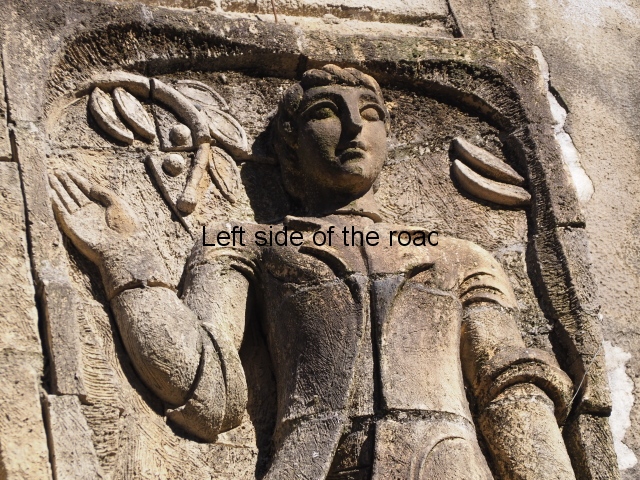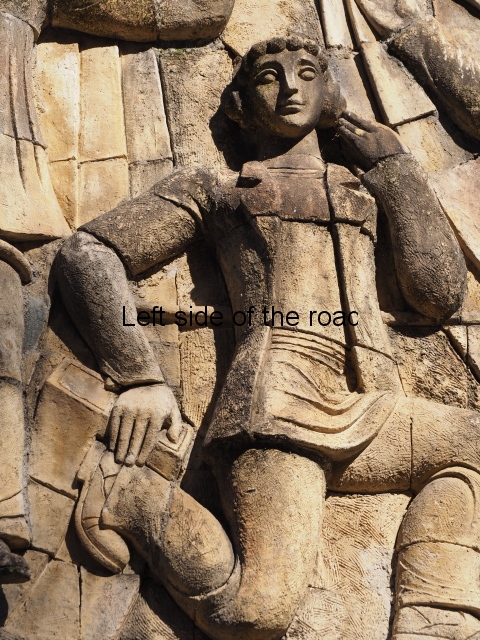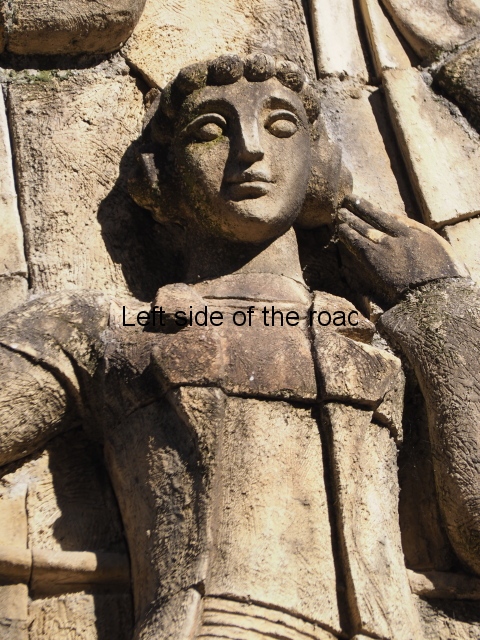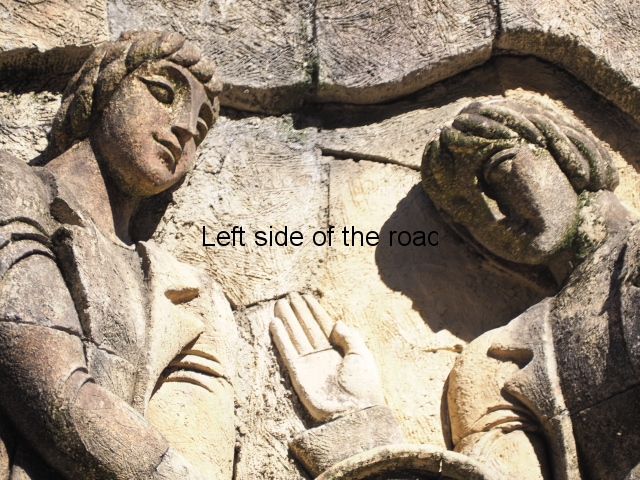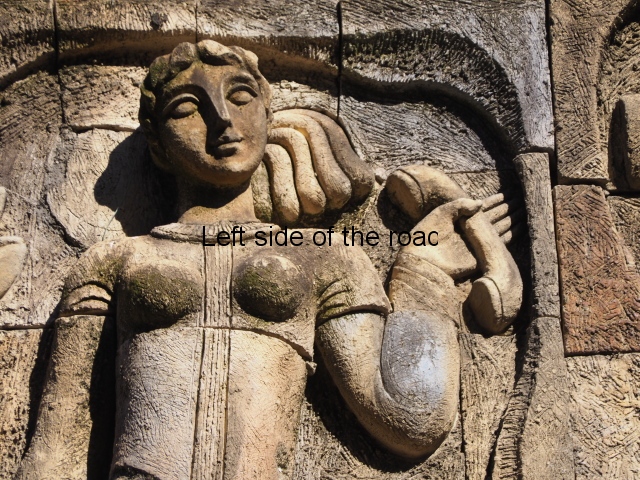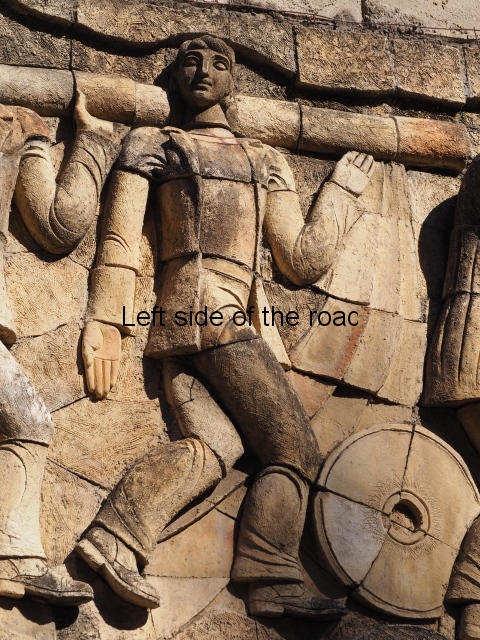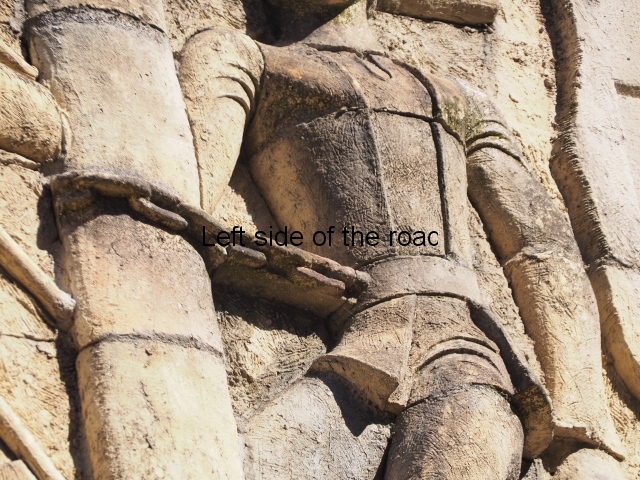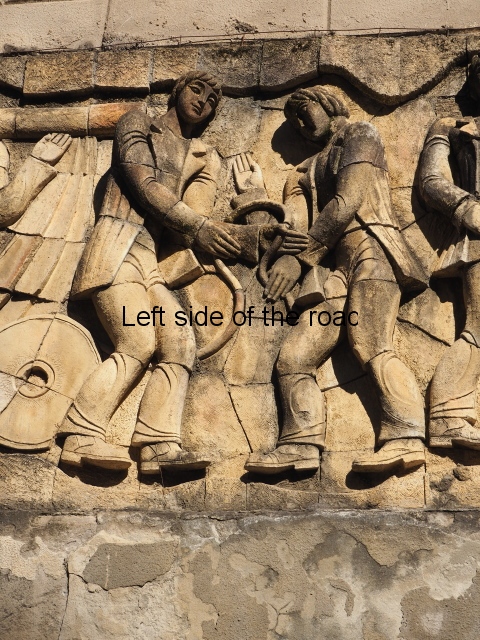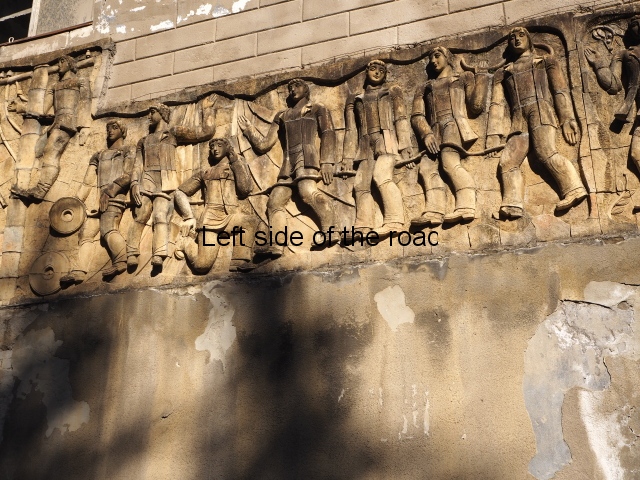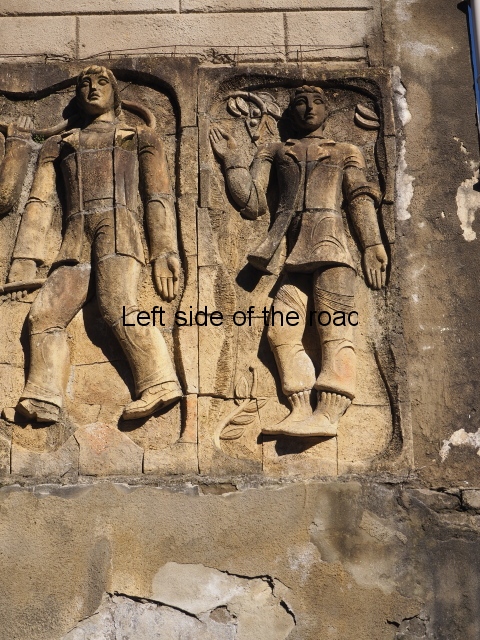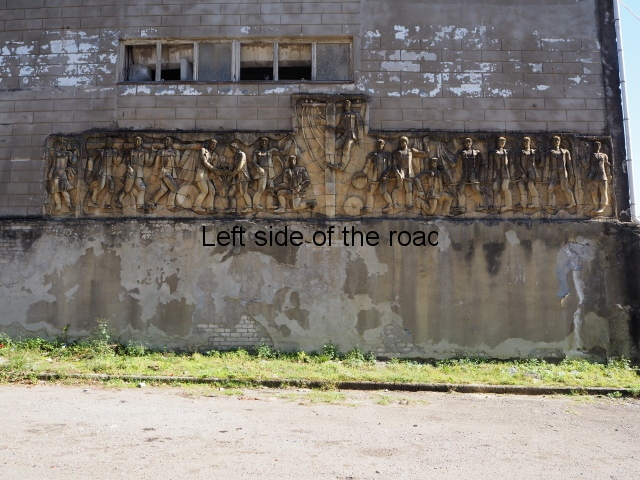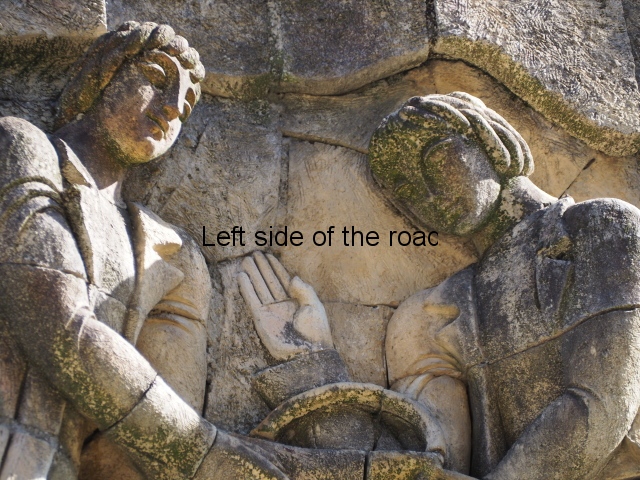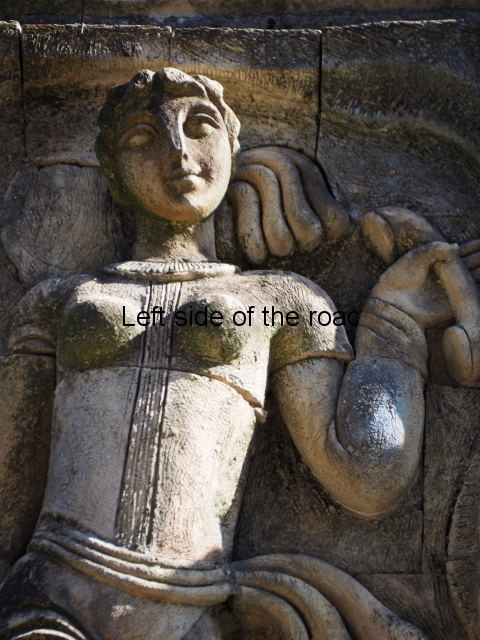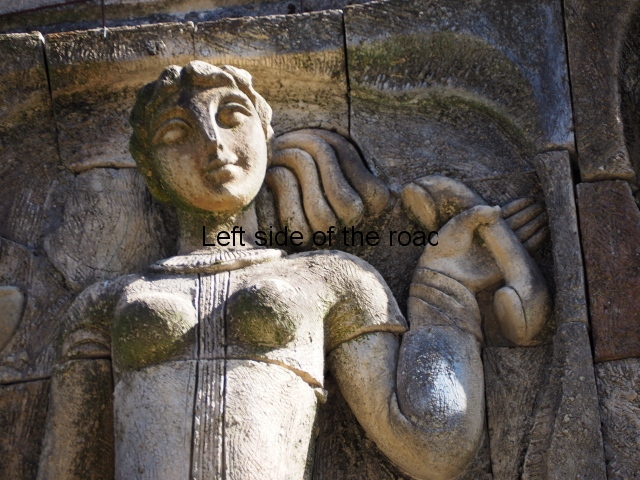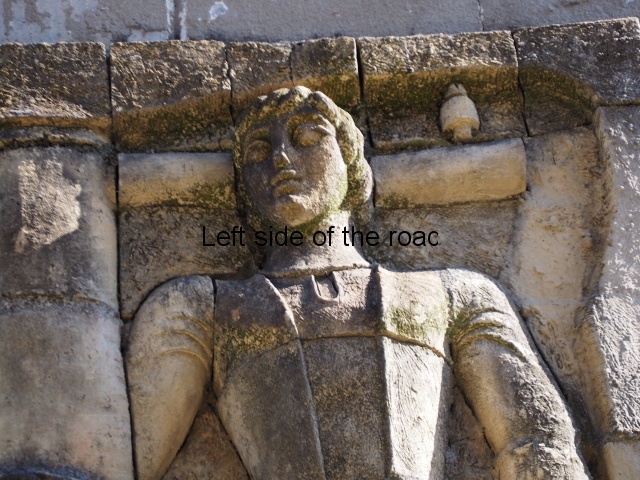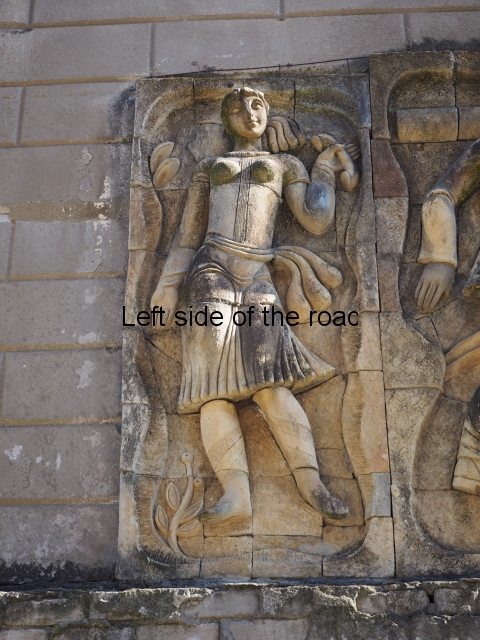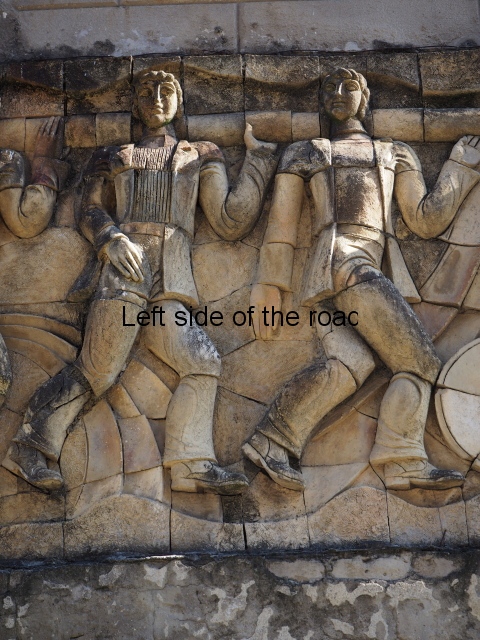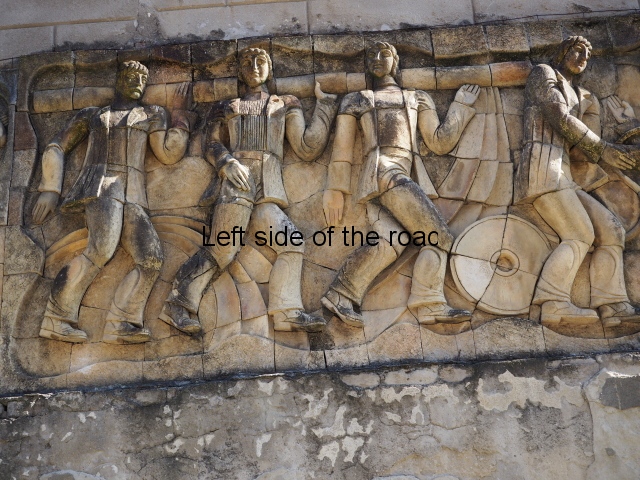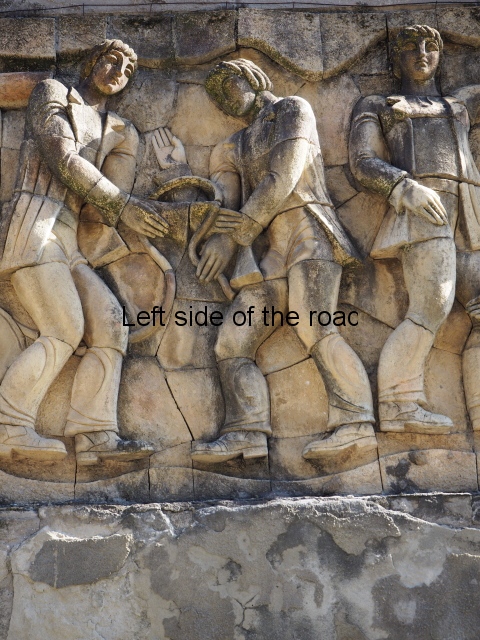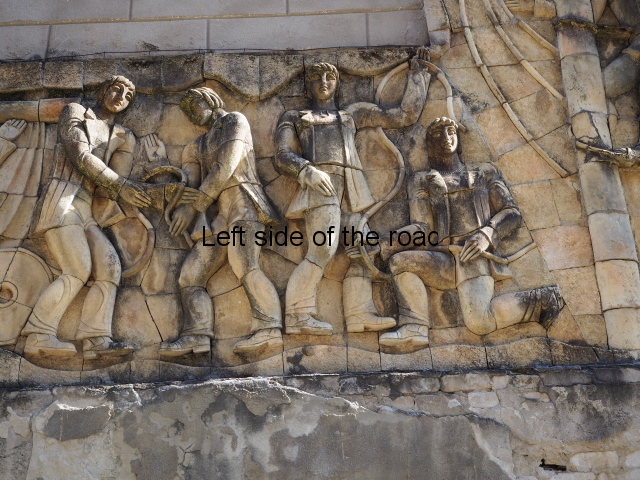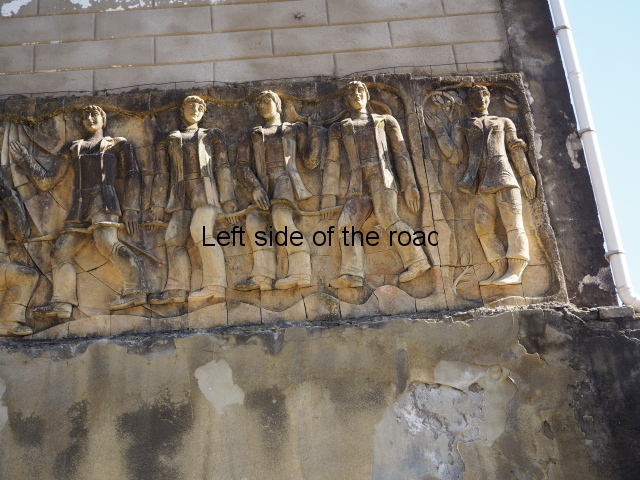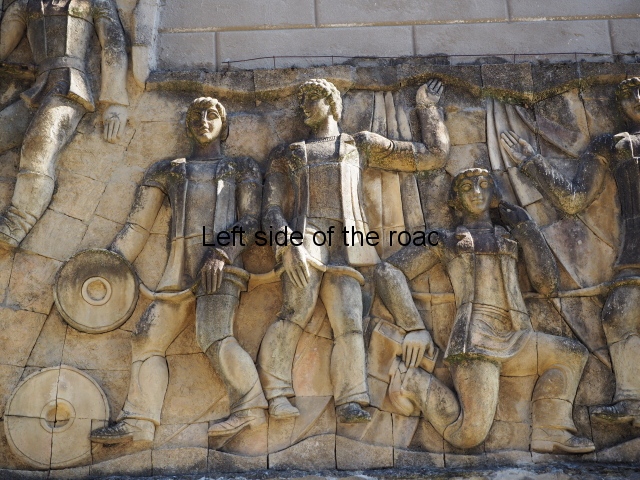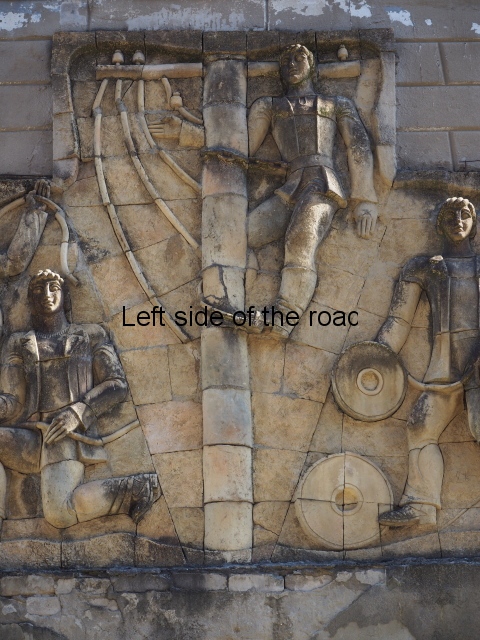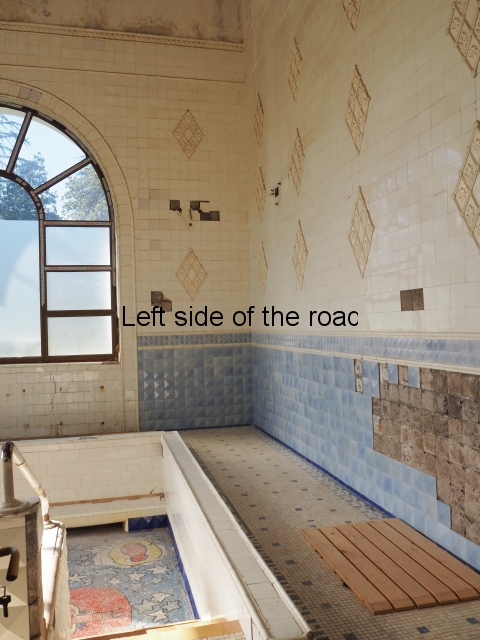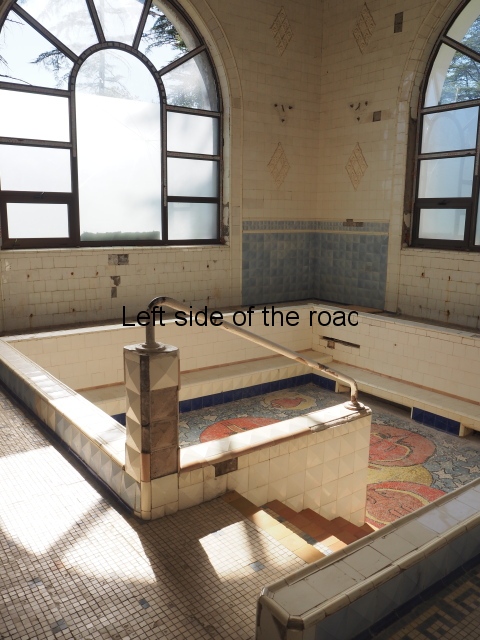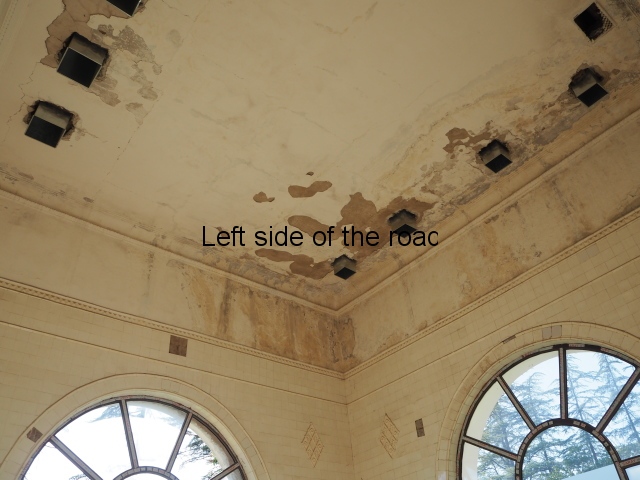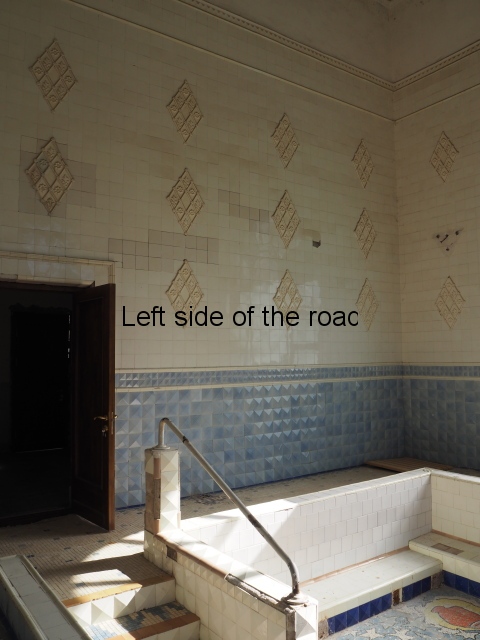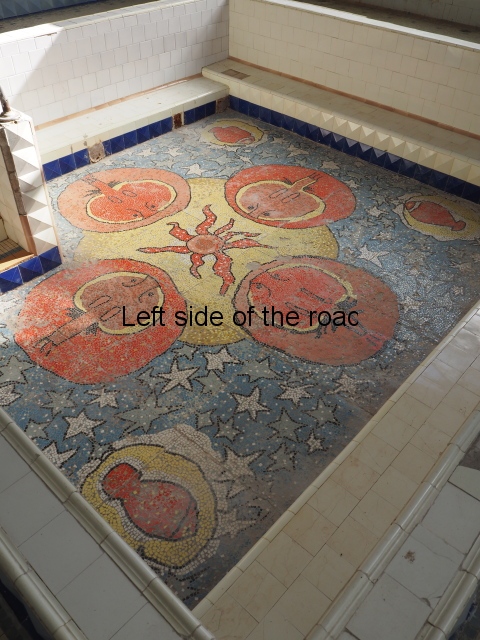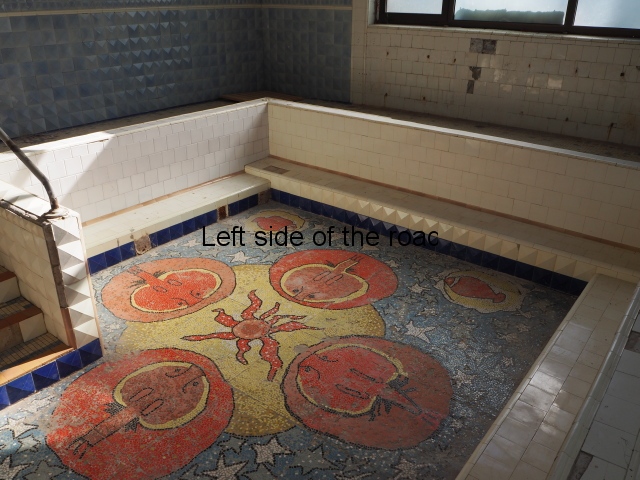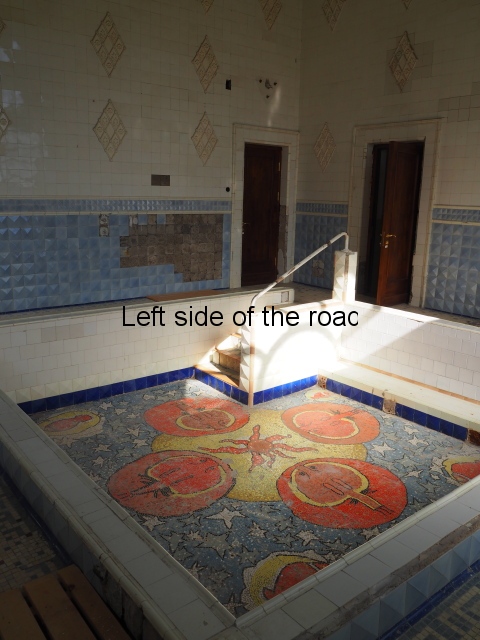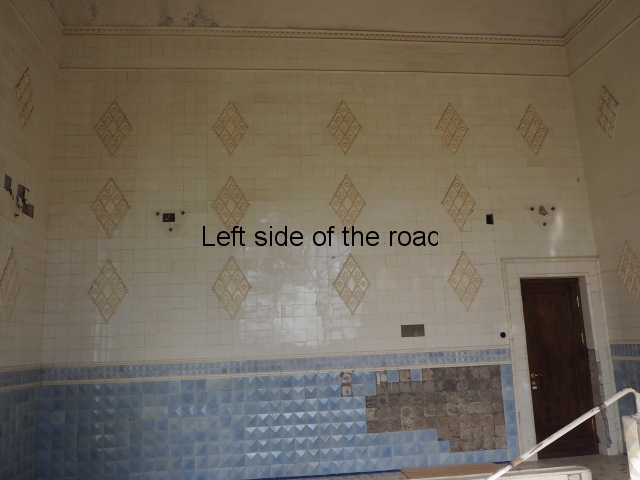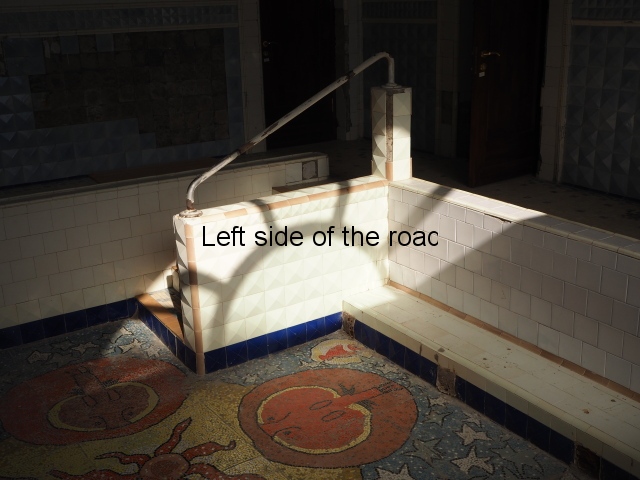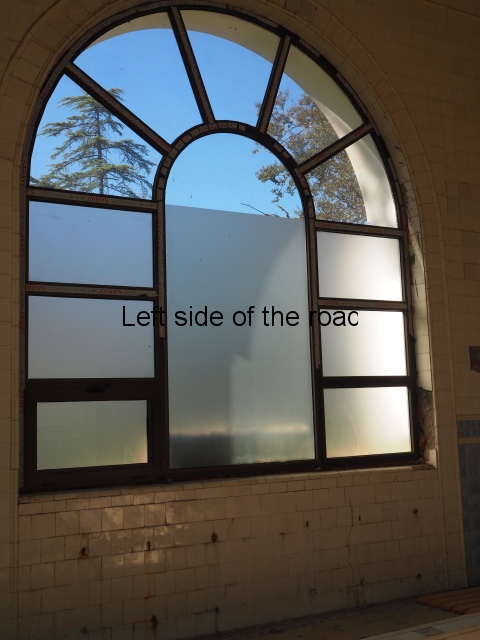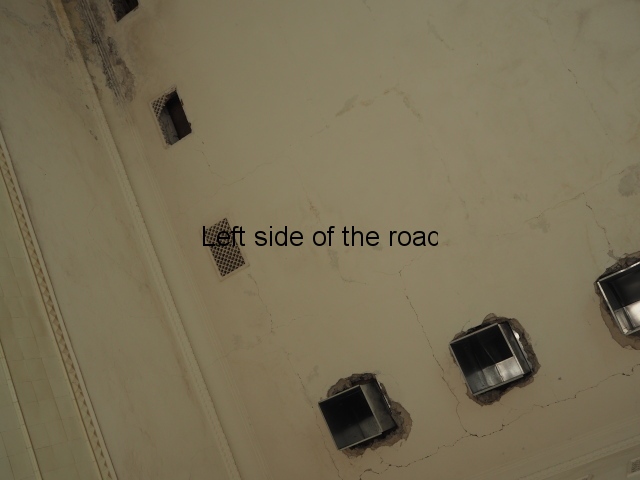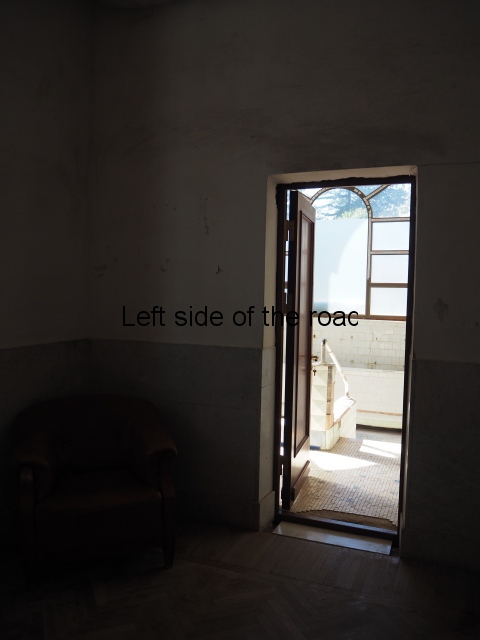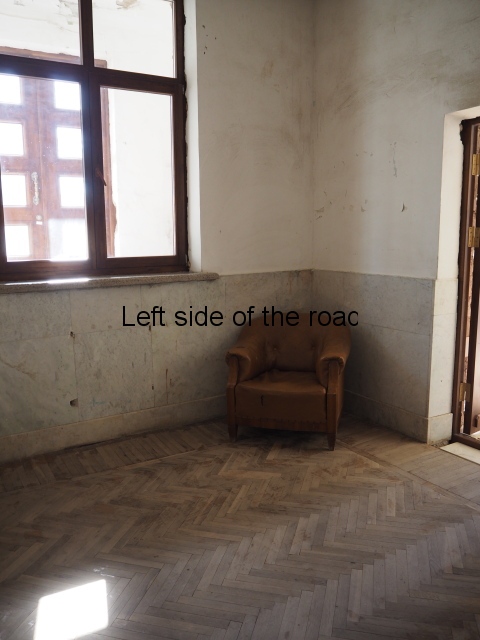
Mayakovsky – Kakabadze Art Gallery
More on the Republic of Georgia
Mayakovsky in Kutaisi, Georgia
Vladimir Mayakovsky, was born in Baghdati, about 15 kms south of the city of Kutaisi, in western Georgia, on 19th July 1893. Described by Joseph Stalin, in 1935, as
‘the best and the most talented poet of our Soviet epoch’
he also criticised the Soviet intellectual establishment of ignoring Mayakovsky’s achievements after his death on 14th April 1930 adding
‘indifference to his cultural heritage amounts to a crime’.
Mayakovsky and Marxism
Mayakovsky got involved in the growing revolutionary movement in Russia soon after moving to Moscow in 1906 and during that time developed a passion for the works of Marxism.
‘Never cared for fiction. For me it was philosophy, Hegel, natural sciences, but first and foremost, Marxism. There’d be no higher art for me than ‘The Preface’ by Marx,’
he wrote in his autobiography ‘I, Myself’.
And when he is writing about ‘The Preface’ he means that to Marx’s 1859 book ‘A Contribution to the Critique of Political Economy’. But not all the preface, there’s one section that is almost hidden amongst some dry text which springs out at the reader as a work of poetry, beautifully constructed, with complex ideas but expressed in a clear and concise manner. It’s no wonder that, as an aspiring poet when he first read those words, they made such an impact upon the young Mayakovsky.
Mayakovsky and Russian Futurism
But for a number of years prior to the October Revolution he bounced around and, as he also wrote in his biography;
‘Revolution and poetry got entangled in my head and became one.’
In this period he was very much involved in the Russian Futurist movement, one of the avant-garde movements that developed in the early 20th century, which rejected the past and praised industry, technology, city living and speed.
Mayakovsky as a Socialist Propagandist
Immediately after the end of what became known as World War One 14 imperialist nations (who had been knocking hell out of each other for four years) invaded the young revolutionary Russia to assist the White reactionaries forces. Since the October Revolution they had been inflicting death and destruction in the Red (pro-Soviet) areas murdering anyone who had the temerity to stand up against exploitation and oppression. In this environment Mayakovsky threw his knowledge and skills into producing revolutionary propaganda to instil in Russian workers and peasants the determination to resist the re-establishment of the old order.

Ukrainians and Russians have a Common War Crime – Pan will not be the master of the worker
‘Art must be everywhere – on the streets, in trams, in factories, in workshops, in workers’ apartments’,
he stated and estimated he had created about 3,000 posters during the Civil War.
Mayakovsky and Lenin
Mayakovsky was a life long admirer of VI Lenin, the great Marxist and leader of the revolutionary Bolshevik Party. He showed his respect for the Lenin by producing a 3,000 line epic poem, called ‘Vladimir Ilyich Lenin’ which was published in October 1924, nine months after Lenin had died on 21st January of that year.
The dual language version of the poem published by Progress Publishers, Moscow, in 1970.
Mayakovsky admired Lenin but such respect wasn’t always reciprocated.
On May 6th, 1921 Lenin wrote to AV Lunarcharsky (People’s Commissar for Education from 1917 to 1929);
‘Aren’t you ashamed to vote for printing 5,000 copies of Mayakovsky’s “150,000,000”? It is nonsense, stupidity, double-dyed stupidity and affectation. I believe such things should be published one in ten, and not more than 1,500 copies, for libraries and cranks. As for Lunacharsky, he should be flogged for his futurism.’
VI Lenin Collected Works, Volume 45, p138
However, on March 6th, 1922 Lenin said in a speech to the Communist Group at the All-Russia Congress of Metalworkers:
‘Yesterday I happened to read in Izvestia a political poem by Mayakovsky. I am not an admirer of his poetical talent, although I admit that I am not a competent judge. But I have not for a long time read anything qn politics and administration with so much pleasure as I read this. In his poem [Incessant Meeting Sitters] he derides this meeting habit, and taunts the Communists with incessantly sitting at meetings. I am not sure about the poetry; but as for the politics, I vouch for their absolute correctness. We are indeed in the position, and it must be said that it is a very absurd position, of people sitting endlessly at meetings, setting up commissions and drawing up plans without end.’
VI Lenin Collected Works, Volume 33, p223
Mayakovsky’s Death

Mayakovsky in 1930
On 14th April 1930 Mayakovsky committed suicide. As with any death of a ‘celebrity’ there’s a shed full of conspiracy theories surrounding the circumstance of their demise. I won’t be even going there. There is a somewhat prurient photograph of the dead Mayakovsky showing a blood stain in the region of his heart – an unusual choice of target in a suicide. Perhaps a sign of his vanity and didn’t want to destroy his looks.
Why Mayakovsky in Kutaisi?
During the period of Socialist construction – which effectively ended in 1956 after Khrushchev made his infamous speech at the 20th Congress of the CPSU – Maykovsky was praised and respected for the work he had produced in times of crisis, i.e. the Civil War from 1917-22, as well as the efforts he made in the establishment of a new sort of writers organisation where ‘intellectuals’ would serve the people and not be the lackeys of rich patrons.

Mayakovsky – Kakabadze Art Gallery
In the period that followed the denunciation of Comrade Stalin by Khrushchev at the 1956 Congress the revisionists in the Soviet Union then turned on anything that challenged the direction they wanted to take the Soviet Union – now a post-Socialist state. This meant that Mayakovsky’s involvement in the Russian Futurist movement was played up in an inverse ratio as his role in the construction of Socialism was played down.
Then came the collapse of the Soviet Union into an openly capitalist society – the inevitable consequence of the decisions made in the 1950s. Georgia split from the erstwhile Soviet Union and gradually relationships between the two countries got worse and this exploded in a short 5 day shooting war. Although the firing stopped the animosity didn’t and as a consequence many of the manifestations of the Soviet past were either destroyed or neglected (such as the monument to the Unknown Soldier and the statue of Victory in Vake Park in Tbilisi which has just been left to rot.)
And the same fate has befallen Mayakovsky. Even though he was born in Georgia, in a small village close to Kutaisi (where he went to school until leaving for Moscow in 1906) he was, and still is, obviously too tainted with the Soviet Union to have a statue of him treated with any respect. I can’t imagine that where it is now to be found (in the courtyard of the Kakabadze Fine Art gallery in Kutaisi) was it’s original location.

Mayakovsky – Kakabadze Art Gallery
This courtyard is sometimes called (in the crass British guide books) as a ‘Sculpture Park’ but presently it’s more of a dumping ground for statues that aren’t politically acceptable (for whatever reason) to be on real public display. The courtyard is more correctly described as the designated smoking area for the art gallery staff.
Despite the above reservations it is a place to visit if you head to the art gallery. When I went it was the only place I could visit as although the gallery was nominally open it wasn’t to the public as ‘something was being set up in the gallery space’. (I think this was just an excuse that is given by museum staff when they don’t feel like making an effort. I encountered a similar situation in the Kutaisi Military Museum.) The only place I could visit was the courtyard.
But it was worth it. I’ll talk about the other sculptures in another post but here I want to concentrate on one statue – that of Vladimir Mayakovsky.

Mayakovsky – Kakabadze Art Gallery
It’s not in a good condition – but not as bad a condition as some of the statues who share the space. It seems to be made of stone – but not a particularly hard stone as the environment it has been living in for I don’t know how many years has not been very conducive to its preservation. There’s a fair amount of algae growing on the surface and this seems to be taking its toll. The courtyard doesn’t really get any movement of air and it’s probably quite cold and damp in winter – and even in summer the warmth from the sun is only there fleetingly and it can be quite humid.
This is where Vladimir now lives. For how long I, and I’m sure nobody, knows. As with the other damaged statues in the courtyard it might be the weather that really determines their fate. Once past a certain level of decay the expense of restoration would become prohibitive.

Mayakovsky – Kakabadze Art Gallery
I would like to have know more about the statue; where the statue originally stood, when it was moved – but have only been unable to identify the sculptor who was Irakli Ochiauri, who was born in Tbilisi on 24th November 1924 and died on 4th December 2915 (place unknown).
Location
The courtyard of the Kakabadze Fine Art Gallery on Rustaveli Avenue 8, just across the road and slightly to the centre of town from the Information Centre in the older part of Kutaisi.
GPS
42.2709
42.7008
Opening times
Monday – Friday 10.00 – 18.00
Entrance
GEL 1






